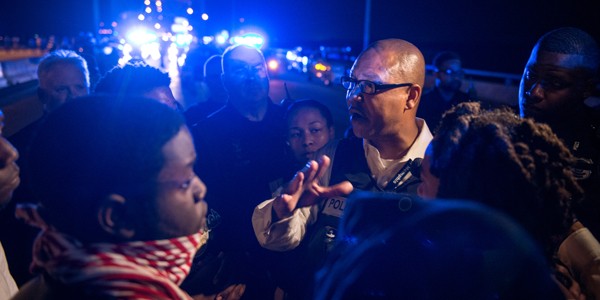
The city will get to make its case for modifying the 1978 consent decree prohibiting
police surveillance in June.
Earlier this month, U.S. District Judge Jon McCalla denied the city’s motion to immediately “significantly modify” the 1978 Kendrick Consent Decree. The city argued that the decree prohibits the Memphis Police Department (MPD) from “using other agencies or persons as ‘surrogates’ to do indirectly what it could not do directly,” preventing coordination between law enforcement agencies.
But McCalla denied the request, saying that because all parties have not agreed to the modification of the consent decree, there would have to be an evidentiary hearing before the court could make a ruling.
Thursday McCalla said an evidentiary trial hearing on that matter is set preliminary for June 17th. Then, the court will review all of the information it’s received and make a decision on if the consent decree should be modified and if so, what changes should be made.
The team appointed to ensure and monitor MPD’s compliance to the consent decree gave its third progress update to the court Thursday.
At Thursday’s hearing, Rachel Levinson-Waldman, the monitoring team’s social media and public policy expert, discussed the social media policies for federal agencies. Levinson-Waldman said the FBI and IRS are the only two agencies that use social media for investigative purposes and have a publicly available policy.
The FBI guidelines allows for collecting First-Amendment-protected information only if its related to an authorized investigation. The collection will not interfere with the individual’s Constitutionally protected rights, and if the method of investigation is the “least intrusive alternative.”
Levinson-Waldman said that these guidelines mirror language in the 1978 Consent Decree.
Generally, the FBI guidelines allow for more intrusive investigative methods as the level of the investigated increases.
One key piece of the FBI guideline Levinson-Waldman noted is that during an inquiry, unless related to federal crimes or national security, the agency is allowed to search and review public social media accounts, but is prohibited from using fictitious personas or engage in undercover activity.
MPD’s use of the undercover Facebook account of Bob Smith was one of the violations noted in McCalla’s ruling last fall. The account friended more than 200 activists.
One of the takeaways from Thursday’s hearing for local activist Hunter Demster is that there aren’t many clear, outlined policies nationally of local and federal law enforcement agency’s social media use.
“From the get-go, a lot of us have said that is going to be one of the most important elements that comes out of this entire process,” Demster said. I think we have an opportunity to set the standard for the rest of the country. I think it’s important to look at what other federal and local departments have done, but I think we need to pave a new path forward. At the center needs to be people and their civil rights, not necessarily public safety.”
The monitoring team and the city were given until Tuesday, November 26th to submit the most recent draft of the new MPD social media policies and training procedures, as well as an audit and compliance plan to the court.
The monitor team is looking to hold focus groups early next year. Dr. Sheila Peters, an associate professor of physiology at Fisk University will lead those groups. McCalla said this is an important piece of the process as “everyone is entitled to be heard.”
Attorneys for city questioned if the discussions from the focus group will be used for evidentiary purposes. McCalla said the discussions won’t be evidence but “important input.” The groups will create space for the public to bring new concerns to the table and gather public sentiment, he said.
 Brandon Dill
Brandon Dill  Brandon Dill
Brandon Dill